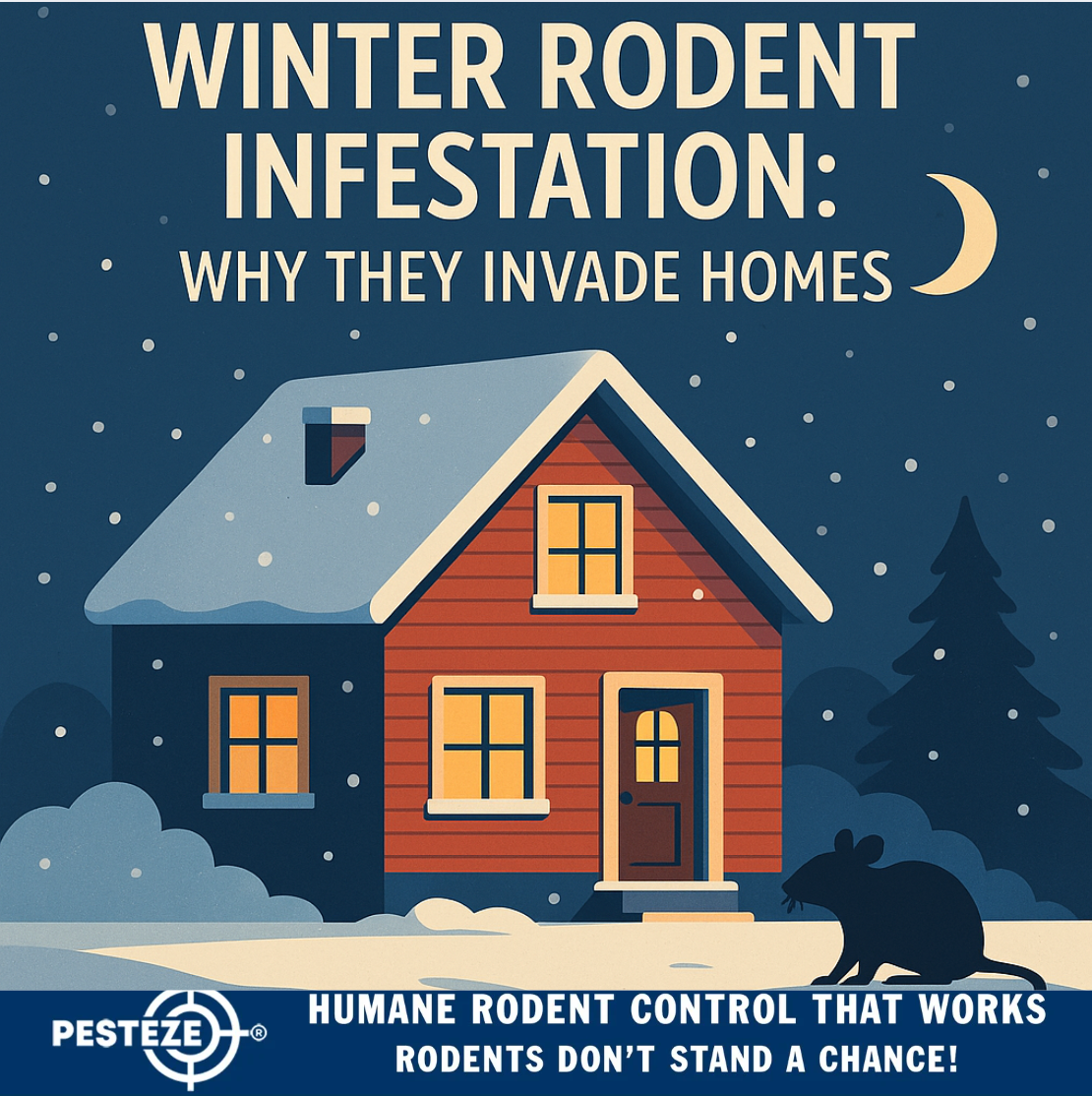WINTER RODENT INFESTATION: WHY THEY INVADE HOMES

WINTER RODENT INFESTATION: WHY THEY INVADE HOMES
SUMMARY
During winter, rodents seek warmth, food, and shelter, making homes a prime target. This guide explains why infestations increase in cold months and how to protect your property from these seasonal invaders.
FEATURES
-
Seasonal Behavior: Understand why rodents move indoors in winter.
-
Warmth & Shelter: How homes provide ideal nesting conditions.
-
Food Accessibility: Pantries, crumbs, and waste attract rodents.
-
Common Entry Points: Cracks, vents, and gaps rodents exploit.
-
Health Risks: Dangers of droppings, contamination, and disease.
-
Prevention Tips: Steps to winter-proof your home against infestations.
DESCRIPTION
As temperatures drop in winter, rodents such as mice and rats become more aggressive in their search for warmth, food, and safe nesting areas. While they may survive outdoors during warmer months, the cold pushes them indoors, leading to a noticeable spike in infestations. Understanding their seasonal behavior helps homeowners prepare and protect their property before it’s too late.
One of the main reasons rodents invade homes in winter is the search for warmth and shelter. Attics, basements, garages, and wall voids offer insulated hiding spots where they can nest undisturbed. The consistent indoor temperature is ideal for survival and reproduction, making homes a prime target.
Food availability is another major attraction. During winter, natural food sources outdoors become scarce, so rodents are drawn to human food supplies. Pantries, unsecured pet food, garbage bins, and crumbs on counters or floors provide rodents with easy meals. Even small amounts of food left out overnight can sustain a rodent population.
Entry points become critical during this season. Rodents can squeeze through tiny gaps around doors, windows, vents, chimneys, and utility lines. As homes are sealed up for winter to conserve heat, overlooked cracks and holes become gateways for pests. Regular inspections and sealing are key to keeping them out.
The risks of winter infestations extend beyond property damage. Rodents carry bacteria, parasites, and viruses that can contaminate surfaces and food. Droppings, urine, and nesting materials present serious health hazards, especially in areas like kitchens and storage rooms.
Prevention is essential to avoid winter infestations. Homeowners should inspect the exterior of their property, seal cracks, and install weatherstripping or mesh over vents. Storing food in airtight containers, disposing of trash regularly, and reducing clutter inside also lowers the risk of attracting rodents.
By understanding why rodents invade homes in winter and taking proactive steps, you can safeguard your household from seasonal infestations while ensuring a healthier, safer living environment.
- Saharsh Bansal


Comments 0